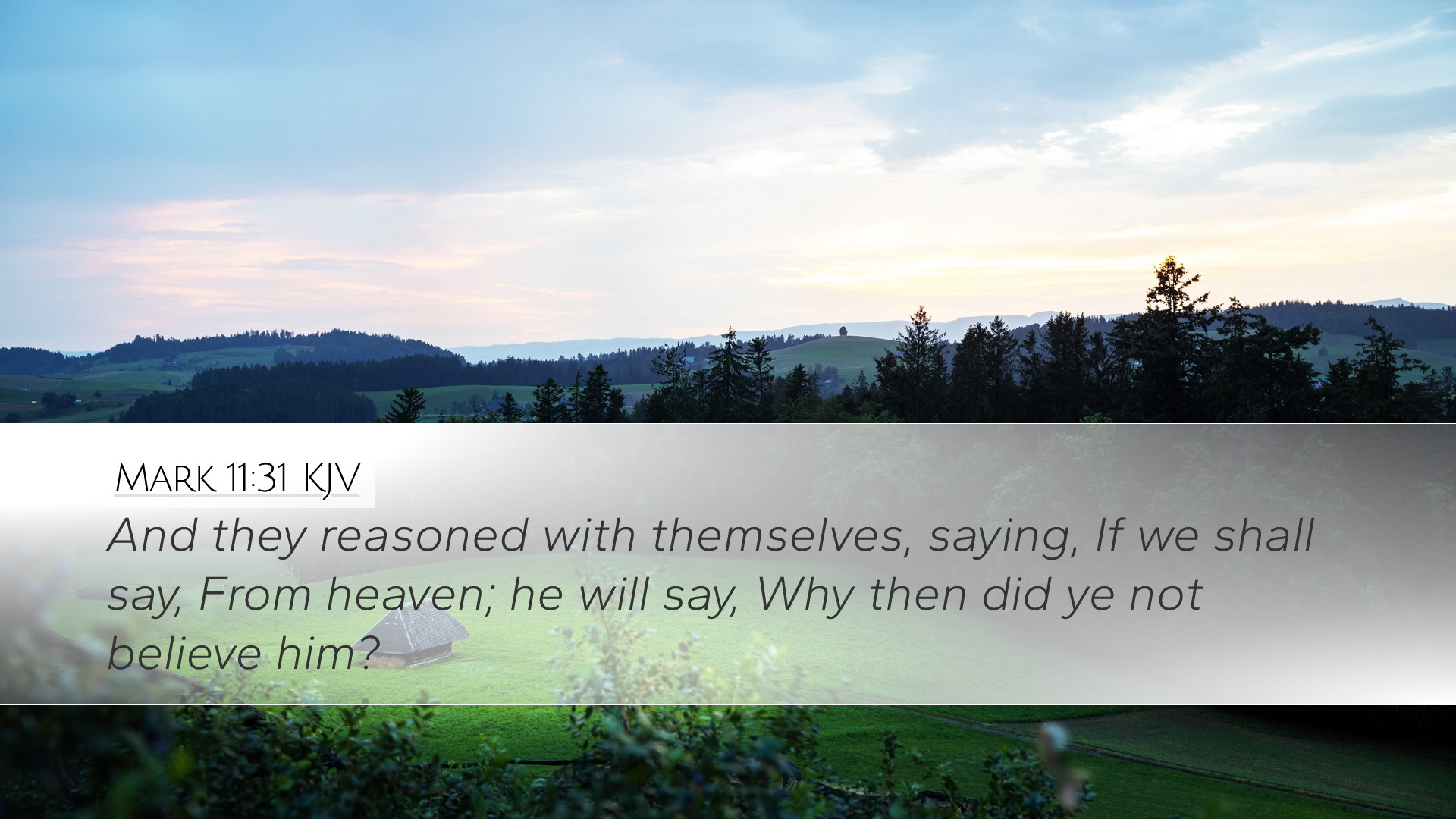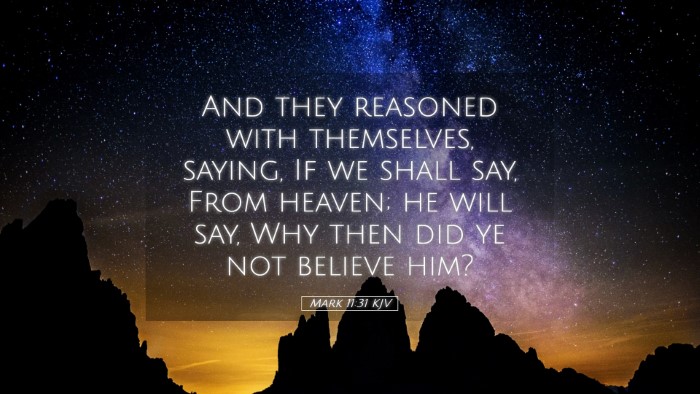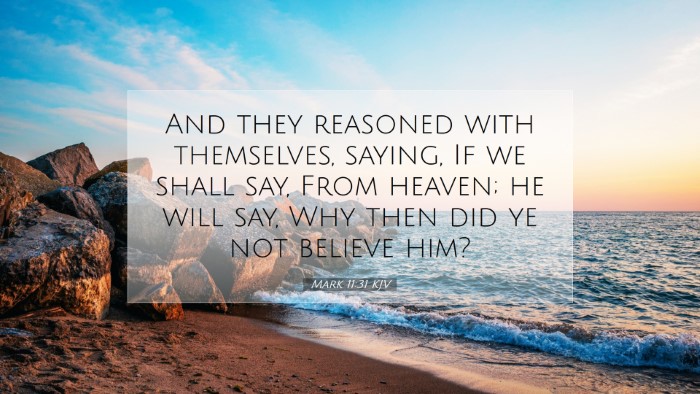Commentary on Mark 11:31
Mark 11:31 presents a significant moment during Jesus’ ministry where the authority of His actions and teachings is questioned. This verse reads:
"And they reasoned with themselves, saying, If we shall say, From heaven; he will say, Why then did ye not believe him?"
Contextual Background
This account occurs in the final week of Jesus’ earthly ministry, a time filled with tension and confrontation between Jesus and the Jewish authorities. As Jesus enters Jerusalem, He cleanses the temple, which provokes a series of challenges from the religious leaders.
Commentary Insights
Notable public domain commentators provide deep insights into this passage:
1. Matthew Henry's Commentary
Matthew Henry notes that the reasoning of the chief priests and scribes reveals their inner conflict regarding Jesus’ authority. Their reluctance to acknowledge Jesus as a divine figure stems from their fear of losing influence over the people. Henry emphasizes:
- The Struggle for Authority: Their question centers on the source of Jesus' authority, which reflects their own insecurities.
- Fear of Public Opinion: If they acknowledged that Jesus' authority came from heaven, they would be compelled to accept His message, something they were unwilling to do due to fear of the crowd.
2. Albert Barnes' Notes
Barnes elaborates on the logical dilemma presented by the Jewish leaders. He suggests that their internal debate illustrates:
- Hypocrisy: Their refusal to give a direct answer indicates a deep-seated hypocrisy, as they were unwilling to uphold their own belief in God’s messengers.
- The Fear of Consequences: Barnes points out that admitting Jesus' authority from heaven would expose their own unbelief, making them culpable.
3. Adam Clarke's Commentary
Adam Clarke expands upon the implications of their reasoning. He posits:
- The Nature of True Inquiry: Clarke suggests that true inquiry into Jesus' authority should not involve deceit or self-preservation but rather open recognition of truth.
- Addressing the Heart: He argues that their inquiry was not sincere; their actions were guided more by pragmatism than by genuine faith.
Applications for Today
Mark 11:31 invites modern readers—be they pastors, students, or scholars—to reflect on their own understanding of Jesus’ authority:
- Recognition of Authority: How do we acknowledge Christ's authority in our lives? Are there areas where we hesitate out of fear or pride?
- Faith vs. Fear: This verse encourages believers to confront fears that may hinder their faith in Jesus' divinity and His message.
- Honesty in Inquiry: The passage challenges us to engage with theological questions honestly and sincerely, rather than through the lens of personal agendas or societal expectations.
Conclusion
Mark 11:31 serves as a powerful reminder of the challenges faced by those who question Jesus’ authority. Through the insights of esteemed commentators, we gain a deeper understanding of the dynamics at play and are prompted to examine our own responses to Christ’s calling. The internal struggle of the religious leaders serves as a cautionary tale against the reluctance to openly acknowledge God's truth.


